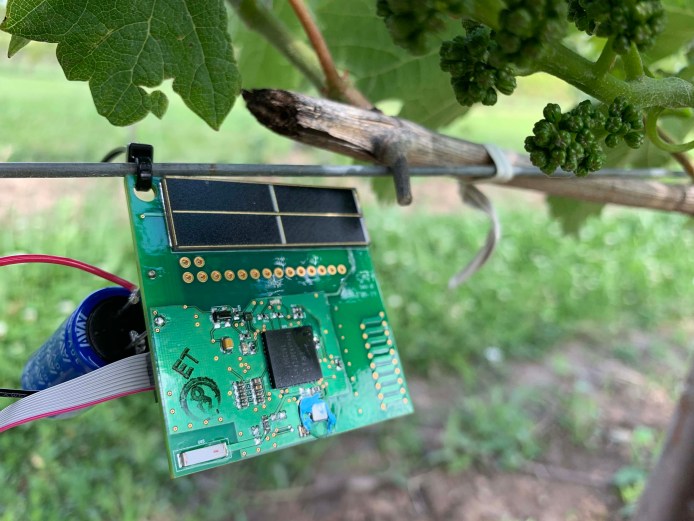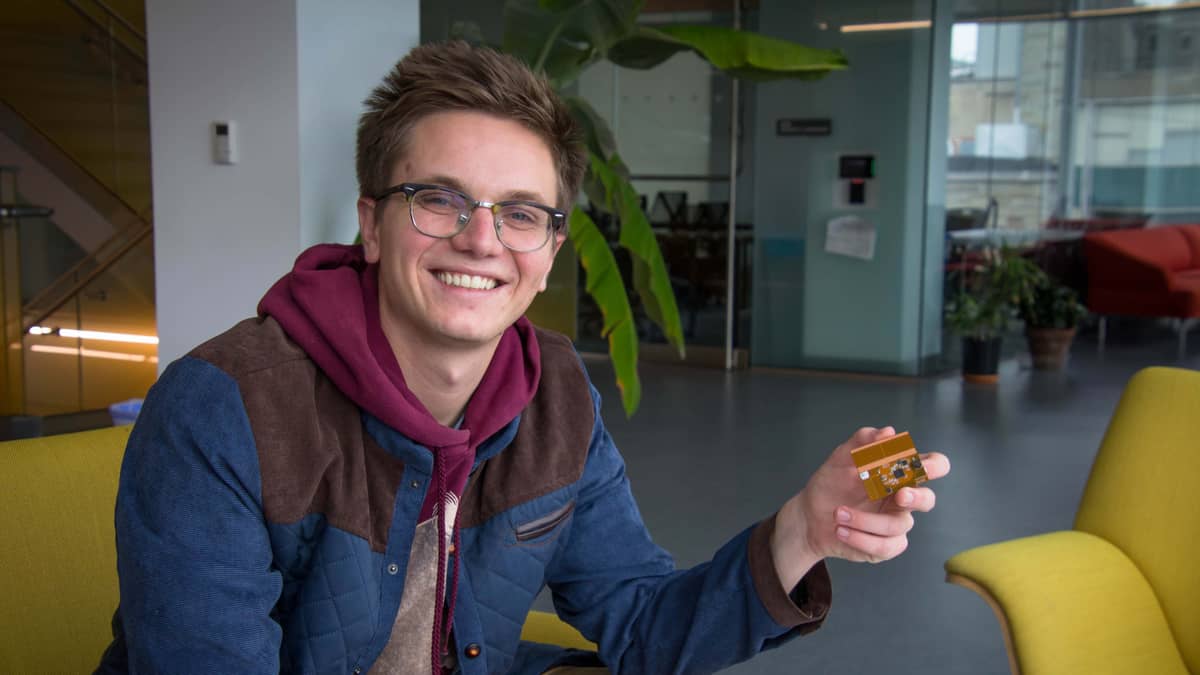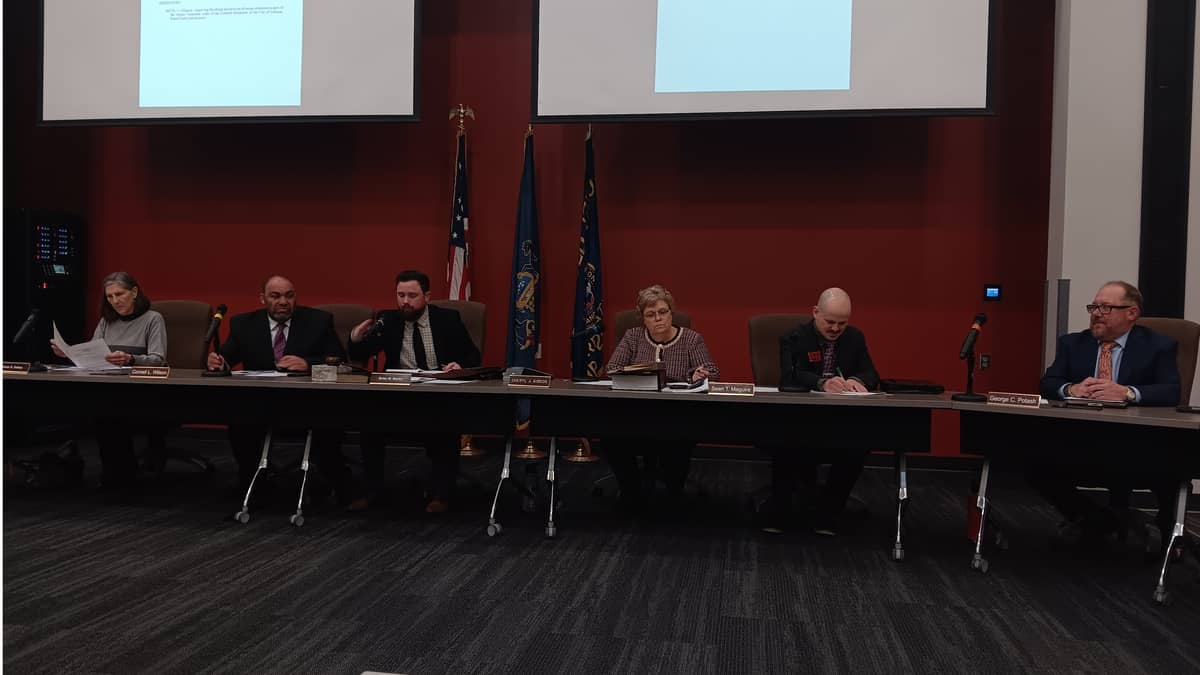Hunter Adams, a 2011 Cedar Crest graduate and current doctorate student at Cornell University, is working on technology that could change the way we collect environmental data, both on Earth and in space.
Adams spoke with LebTown in a phone interview about his current work and what his future plans for the micro-satellites entail.
Adams graduated from Cedar Crest High School in 2011 and headed to Cornell for a bachelor’s degree in physics, which he secured in 2015. A master’s degree in aeronautical engineering followed in 2017, and Adams is set to finish a doctorate in the same field later this year.
What are micro-satellites?
These small devices, which Adams has termed “Monarchs,” weigh in at under ten grams.
“They’re essentially just printed circuit boards,” Adams said. “The same sort of circuit boards you’d find in cell phones or any commercial electronics.” In spite of their simplicity, the Monarchs are an impressive tool when used in bulk.
Each one comes with a set of working features, including a radio system for communication, sensors for temperature, humidity, location, magnetism, orientation, and more.
The data from each individual unit is not especially robust, but when taken in tandem with the data points collected by other units, it can be used to create an informative and wide-ranging set of data about an area.

Adams framed it as a quantity-over-quality approach to data collection, which is, to his knowledge, “the first real example of this philosophy” in spacecraft design (though there’s been a number of important steps made to get to this point).
He compared the different approaches for data collection to the ecological concepts of K-selection and r-selection: an animal may only create a few offspring and devote a lot of resources to them in the hopes that they will stand a better chance in the world, or an animal may either produce many offspring and let probability determine which will survive.
K-selection is the “strategy” favored by creatures like humans, bears, and penguins, while r-selection is the approach taken by frogs, mice, and rabbits.
The prevailing philosophy in spacecraft design is analogous to K-selection. Adams explained this traditional approach thusly: “Let’s devote tremendous money and effort and energy to make certain our spacecraft doesn’t fail, because if it fails, we’re out of luck.”
It’s an approach that has worked well for decades. But the alternative approach, r-selection, is also viable: “Let’s devalue the importance of any particular spacecraft and just launch enough that statistically we can guarantee some critical number will survive.”
Each individual unit is not hugely important or expensive to manufacture; a mass-produced single Monarch unit could theoretically only cost around $50 dollars. If a few are damaged or lost, the risk to the mission is less grave than if a singular expensive unit experiences problems.

Though the Monarchs have the potential to be used as small data-collecting spacecraft in outer space, Adams has been exploring applications for them here on Earth as well.
Adams also discussed the possibility of the technology coming to farms like those in Lebanon. “I really hope so,” Adams said. “I’m trying to get it to that point.” Most of the fieldwork done with the Monarchs has been at vineyards and orchards in New York, which operate differently than the many row-irrigated crop fields of Lebanon.
“If I tell a vineyard manager that part of his vineyard is getting too cold, they have infrastructure to go do something about it,” Adams explained. With row-irrigated crops like corn or wheat, there’s less that can practically be done, even though the data may still be informative.
Nevertheless, Adams is actively exploring options for expanding into those kinds of farms.

There are also livestock applications for the Monarchs. Information collected on animals may be more actionable than information collected from a crop field. Adams has been working with the Cornell College of Veterinary Medicine and New York cattle farms to experiment in this area. By attaching a Monarch-fitted collar to each animal, farmers could theoretically get information on a cow’s activity levels, and use it to determine if a cow is healthy, sick, or in heat.
In his time at Cedar Crest, Adams achieved a lot. He was president of National Honor Society and a captain for the Junior Engineering and Technical Society as well as the cross country and track & field teams. He also received several awards, including the Bausch and Lomb Honorary Science Award and the American Chemical Society Award.
“I came to Cornell with the intention of studying physics,” Adams said, adding that his interest soon shifted to mechanical and aeronautical engineering. One major influence in Adams’ interest in science and technology was his older sister. Another was Cedar Crest physics teacher Nathan Hansell, who helped guide Adams toward the pursuit of a physics degree.
“[Hansell] was a phenomenal teacher for me and really helped cultivate my interest in physics at that time.”
What’s next for Adams and the Monarchs?
The Monarch design has been adapted from the original ChipSat design developed by Cornell professor and former NASA Chief Technologist Mason Peck, who is collaborating with Adams on the project.
Once Adams finishes his doctorate, he’s planning on focusing his time and energy on a small startup project involving the Monarchs. He’s also hoping to secure a Small Business Innovation Research grant in the future for this purpose.
In the meantime, Adams is continuing to experiment and demonstrate the applications on Earth. There’s even a few spacecraft contracts that Adams is signed onto, including ones for NASA and Blue Origin, Jeff Bezos’s space venture.
All images courtesy Hunter Adams.
You can make a difference for LebTown.
LebTown stories are free to read thanks to the support of our members and advertisers. Join our cause and help us tell more stories that matter by signing up today as a member.
Every Monday, our members get a glimpse of what’s coming ahead the rest of the week. Joining LebTown as a member is the best decision you can make if you care about local news in Lebanon County. Plus, invites to our exclusive Facebook group and happy hours, and other special offers.
Learn more and join now here.

























